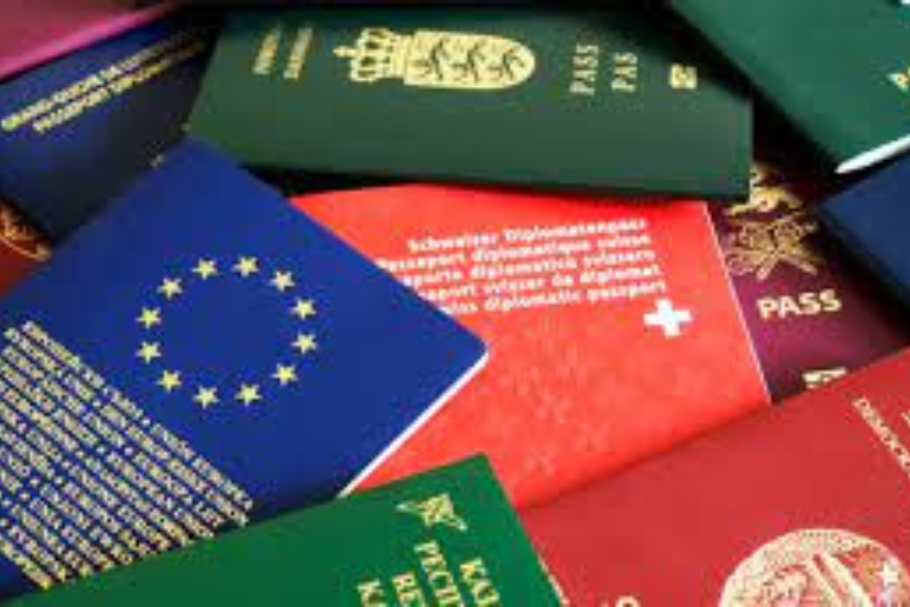The Shifting Landscape of Passport Power Rankings – Singapore Surpasses Japan

The Shifting Landscape of Passport Power Rankings - Singapore Surpasses Japan
Introduction
In an era of globalization and increased connectivity, the power of a passport has taken on new significance. It serves as a key that unlocks the doors to different countries, facilitating travel, trade, and cultural exchanges. A recent development has caught the attention of the world: Singapore has risen to prominence by surpassing Japan in the ranking of the most powerful passports.
This shift in the passport power landscape holds intriguing implications for both countries and travelers. In this blog, we delve into the factors behind this transformation and the broader implications it carries.
The Passport Power Ranking
Passport power rankings provide an insightful perspective on a nation’s international standing. These rankings are determined by evaluating the number of countries a passport holder can visit without requiring a visa or with the possibility of obtaining a visa on arrival. Singapore, a city-state known for its economic prowess and innovation, has now emerged as a frontrunner in this domain.
The Singaporean Surge
Singapore’s ascent to the top of the passport power ranking is a testament to the nation’s strategic diplomacy and global engagement. Singaporean passport holders can currently access more than 190 countries without the need for a prior visa, making it one of the most widely accepted travel documents globally. This achievement is underpinned by the nation’s stable political environment, strong international relations, and an economy that fosters innovation and growth.
Factors Behind the Transformation
Several factors have contributed to Singapore’s leapfrogging of Japan in the passport power ranking:
- Diplomatic Relationships: Singapore’s proactive approach to building diplomatic relationships with other nations has created a network of alliances that facilitate visa-free or visa-on-arrival access for its citizens. These relationships are rooted in trade, cooperation, and cultural exchanges.
- Strong Economy: Singapore’s robust economy and reputation as a financial hub have established it as a trusted global player. Its economic prowess translates into diplomatic leverage and open doors for its passport holders.
- Strategic Foreign Policies: The country’s foreign policies are designed to maximize its citizens’ mobility. Singapore consistently seeks to strengthen its position on the global stage, leading to reciprocal agreements that benefit both the nation and its international partners.
- Investment in Education: Singapore’s focus on education and the cultivation of a highly skilled workforce has earned it respect and collaboration opportunities with other countries, fostering goodwill and facilitating travel for its citizens.
- Innovative Technologies: The nation’s embrace of digital innovation and technological advancements has streamlined administrative processes, contributing to efficient visa-free access for Singaporeans.
Implications for Japan
Japan’s slide in the passport power ranking does not diminish its global significance but prompts a reconsideration of its diplomatic strategies. Historically, Japan has been a major player in international affairs, with its soft power stemming from cultural exports, technological achievements, and economic prowess. To regain its standing, Japan could focus on strengthening diplomatic ties, fostering international cooperation, and leveraging its unique cultural appeal to enhance its citizens’ global mobility.
Global Travel Dynamics
The shift in passport power rankings reflects the evolving dynamics of global travel. As countries engage in diplomatic negotiations and international collaborations, the ease of travel for their citizens becomes a valuable asset. The rise of Singapore underscores the importance of international diplomacy, economic stability, and strategic alliances in the globalized world.
Conclusion
The news of Singapore toppling Japan in the passport power ranking is a testament to the ever-changing landscape of international relations and diplomacy. Passport power is no longer just a matter of convenience for travelers; it’s a reflection of a country’s global reach and standing.
As Singapore takes its place at the forefront of this ranking, it highlights the strategic investments in diplomacy, economics, and education that have propelled its citizens’ mobility. This development serves as a reminder that in an interconnected world, the power of a passport goes beyond its physical pages; it symbolizes a nation’s relationships, values, and potential on the global stage.
For More Related Articles Browse Our Website Blogster.pk
For social Connection You can also Visit and follow our Social media Platforms
Facebook , Instagram, Linkedin, Pinterest, Quora, Twitter, Youtube.







